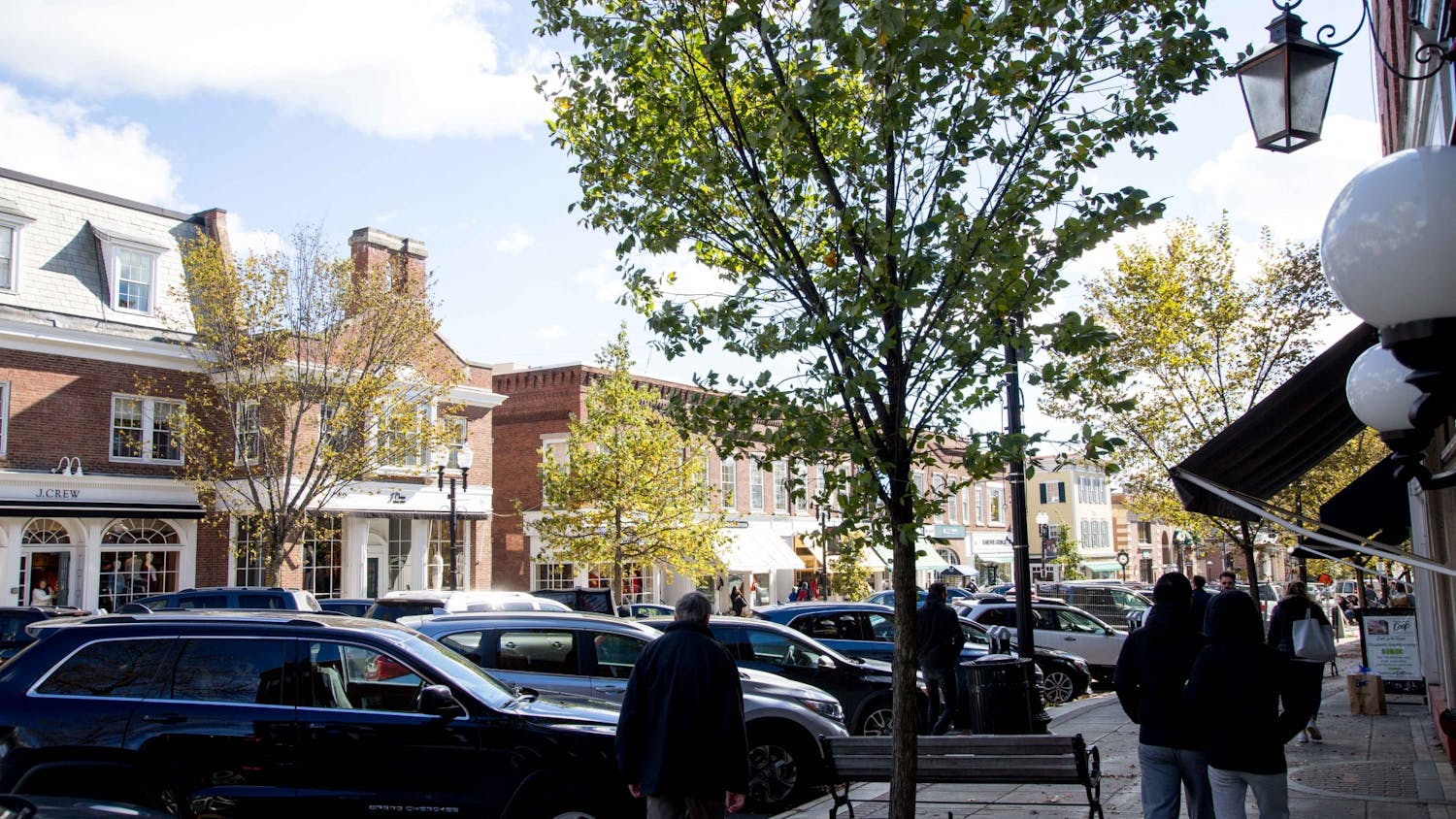In her recent guest column entitled “Selfish Students,” Hanover town manager Julia Griffin criticized Dartmouth students currently living in Hanover for not wearing masks and not following social distancing guidelines. As a student currently living on-campus, I have also received many emails from college officials conveying a similar message, such as a July 3 email from Dean of the College Kathryn Lively informing us of “increasing … complaints from faculty, staff and other local residents” who have seen Dartmouth students ignoring the various recommendations. From my experience, however, Griffin’s sweeping claim is untrue at the macro level and the warnings of college officials — while well-intentioned — are biased and misguided. In fact, I see local Hanover residents committing social distancing violations just as often as Dartmouth students. By antagonizing students, the town and the college fails to acknowledge that local residents are part of the problem, putting us all at risk.
To start, I want to clarify that, yes, Dartmouth students are not infallible. I have seen my fair share of peers ignoring the guidelines in one way or another. But, the students that I do see congregating in groups do so with the same people each time I see them. In essence, they are “breaking guidelines” publicly to hang out with the people they live with — people inside their household bubble who they have already been exposed to.
Why do I make this point? Per the CDC definition of “social distancing,” one should stay at least six feet from other people who are not from your household in both indoor and outdoor spaces. Thus, the students congregating in their household groups are not disobeying health guidelines. We would expect that, if these students were a risk to the Upper Valley, case numbers would have risen when many came back in late-June or early-July. According to data aggregated by the New York Times, that hasn’t happened. Nor does the data show a subsequent increase in COVID cases in Grafton County, which suggests that students are not asymptomatically transmitting the virus to others who would experience symptoms.
Second, myself and others have observed that town residents are equally likely, if not more likely, to congregate in groups or not wear masks. For example, I have witnessed several barbecues and backyard parties amongst local residents where public health guidelines were not being followed, similar to the student parties that Griffin’s article complains about. This is happening despite the fact that many of these residents are older and the exact members of the population that CDC guidelines seek to protect. Considering that many Hanover residents are also Dartmouth employees, it strikes me as obnoxiously hypocritical that the same “faculty, staff and other local residents” who complain about our mask usage have not committed to wearing masks as often as they expect us students to wear them. In addition, I recently encountered three Hanover police officers, none of whom were wearing masks, walking side by side on a foot patrol. If Hanover employees aren’t expected to wear masks, why is the town making a fuss over the few students who aren’t?
Furthermore, if the town of Hanover is concerned with students in household groups spreading COVID-19, they should be equally concerned about local residents in household groups spreading COVID-19 as well. Referring to the definition of social distancing above, it is important to keep six feet apart from those not in your household in both indoor and outdoor spaces. Walking by dining establishments along Main Street, such as Lou’s and Murphy’s, it is clear that the tables used for outdoor dining are in no way six feet apart. If household groups are a problem, then the town should equitably target all residents by revoking restaurants’ ability to have outdoor dining options.
I want to make it clear that I understand and empathize with the town residents: managing the transmission of coronavirus is important to reopening campus, a crucial milestone not only for Dartmouth’s academics but also Hanover’s economy. I agree that social distancing and masking guidelines must be followed by everyone. I also recognize that we, as students, are not perfect. However, it is not some students who are disregarding guidelines, nor some Hanover residents: instead, some people, broadly defined, are ignoring public health guidelines, placing the entire community at risk. Instead of directing all blame on Dartmouth students, the town of Hanover must also take responsibility for the “selfish” actions of its residents.
If the town of Hanover is truly concerned about the spread of COVID-19, why haven’t crowded public spaces been closed? Why are Hanover employees immune to the hawkish eye of the town when students must face its wrath? While I’m glad to hear that a mask mandate is on the horizon, why has it taken so long to be considered? As we’ve seen across the country, thinly veiled threats do nothing to stop the spread of COVID-19. Instead of infiltrating student platforms to tell us to “smarten up,” the town of Hanover must take meaningful action to truly mitigate the spread of COVID-19 so that everyone, students and locals alike, can reap the benefits of Hanover and the Upper Valley come fall term.
Allen is a member of the Class of 2023.
The Dartmouth welcomes guest columns. We request that guest columns be the original work of the submitter. Submissions may be sent to both opinion@thedartmouth.com and editor@thedartmouth.com. Submissions will receive a response within three business days.


